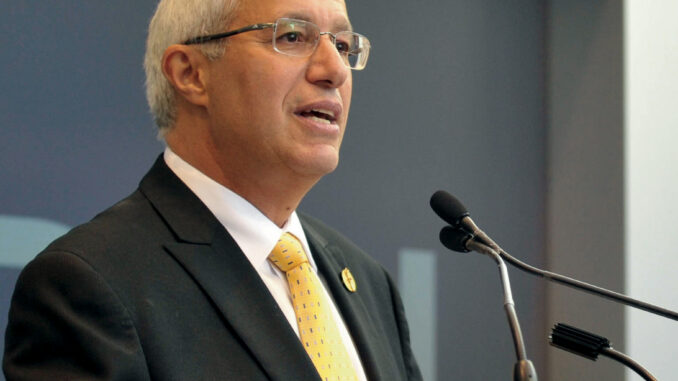
Improvement is the result of stronger economic growth supported by Ontario’s open for business approach to government.
Today Vic Fedeli, Minister of Finance, was joined by Peter Bethlenfalvy, President of the Treasury Board, to provide an update on the province’s finances. The government released the Ontario 2018-2019 Third Quarter Finances which, for the first time, reveal a $1 billion reduction in the Province’s deficit, largely driven by increased economic activity from consumers and businesses. The deficit is now projected to be $13.5 billion in 2018-19.
The report shows improvements in the Province’s financial position, demonstrating that Ontario’s plan to fix government is working. Businesses are investing, expanding and hiring in Ontario. This business confidence is helping Ontario individuals, families and communities.
“The third quarter finances show that our government’s plan to get Ontario back on track is yielding positive results,” said Fedeli. “By working to restore the public’s confidence in Ontario’s finances, cutting red tape and being open for business and open for jobs, we are giving people across Ontario more confidence in our future, and this confidence is reflected on the bottom line.”
The Third Quarter report represents the government’s commitment to transparency and accountability, and stands in stark contrast to the previous government, which only released this report three times in the past 10 years despite a legislative requirement to publicly report on the province’s finances.
Fedeli noted that the government had already identified $3.2 billion in savings as was previously detailed in the 2018 Fall Economic Statement. As a result, even after returning $2.7 billion to the taxpayers, Ontario’s deficit had declined by $500 million. When combined with the improved revenue numbers, the new projections confirm that, the Ford Government had already reduced Ontario’s inherited deficit by $1.5 billion to date.
The ministers revealed that the government is continuing to take steps to control unnecessary expenses and provide the people with certainty that their tax dollars are being treated with respect. To that end, the government has directed all ministries to limit spending to commitments under contract, legislation and/or requirements to fulfil core services up to March 31, 2019. Ministries are also directed to not enter into any new funding commitments, including spending from within their allocation, unless the ministry has sought and received specific direction to do so from the Treasury Board.
“We are taking steps to curb the kind of new spending that governments sometimes see towards the end of their fiscal years — what we call March Madness,” said Bethlenfalvy. “By implementing these new measures we are building on our commitment to restore trust and accountability in the province’s finances.”
“We are keeping our promises to the people, while at the same time putting Ontario back on a path to balance in order to protect health care, education and all other key services that individuals and families cherish and rely upon every day,” added Fedeli.
Quick Facts
- The government’s fiscal year runs from April 1 to March 31.
- Ontario’s fiscal third quarter spans October 1 to December 31.
- The 2018-19 revenue outlook is projected to be $149.2 billion, or $1 billion higher than forecast in the 2018 Fall Economic Statement. The increase is due to higher Harmonized Sales Tax and Corporate Income Tax revenue.
- The provincial deficit is now projected to be $13.5 billion in 2018-19.
- The outlook for total expenses in 2018-19 is $161.8 billion, an increase of approximately $4 million compared to the 2018 Fall Economic Statement, due to additional funding to fight guns and gangs.
- The Province’s interest on debt expense forecast, at $12.5 billion, is unchanged from the 2018 Fall Economic Statement.
- Ontario’s real GDP increased by 0.6 per cent in the third quarter of 2018, led by gains in consumer spending and investment in non-residential structures.
- The report of the Independent Financial Commission of Inquiry was released on September 21, 2018, and found that Ontario’s deficit was $15 billion.
- On February 12, 2019, the government welcomed Charles-Antoine St-Jean as Chair of the Corporate Audit Committee, a move that will strengthen the internal auditing, monitoring and reporting processes in government.
- The line-by-line review was conducted by EY Canada and revealed rapid expenditure growth across key sectors and public programs under the previous government. The report identifies a number of ways the government could transform programs and services to ensure sustainability and value for money.

Leave a Reply